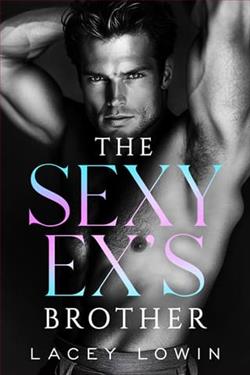Page 100 of The Princess and the Fraud
I’d love to hear you play it, Aaron had said back in June.Elgar’s Cello Concerto.
And it was finally time.
The first note bloomed from the strings like a breath held too long, quivering and uncertain before settling into the air. I froze, cutting off the progression, the sound reverberating and swirling around me.
If you play the cello, you’re a cellist.
I was a cellist.
I started over, my fingers finding their space instinctively. What started as hesitation quickly turned into intention as the piece gripped me, muscle memory replacing my uncertainty. Elgar’s Concerto was one I’d always gravitated toward playing, the one piece I could truly lose myself in. With each subtle, rhythmic rock of my fingertip paired with the fluid way my bow kissed the strings, the notes came to life. They echoed in the dim, empty theater, the push and pull of the rapid pace.
For the first time in years, it felt like I was finally speaking—pouring out everything I hadn’t known how to say. Now, the music didn’t just fill the space around me; it reached inside, prying free parts of me I’d tried so hard to lock away.
As I played, I could feel myself transported back. Not just to the hours upon hours of practicing this piece, but all the other concertos, all the other concert halls and performances—a whole life I’d left behind when my mother passed away. The realization of somethingmissinghad always clung to me, but I’d always assumed it was solely from her stark absence.
But it wasn’t just the Mom-shaped hole that’d left me numb. As I played, warmth seeped back into my soul, one note at a time.
My rendition wasn’t clean. It wasn’t technical in the slightest. I played solely with my heart; my instructor would’ve scolded me. But it was bare and raw and dripping of everything I’d held back in the past five years. Desperation and pain and grief and unhappiness—mixed in with joy and warmth and hope. All of it brimmed inside me, nearly too much to contain.
I glided the bow rapidly across the strings in a short line, drawing the vibrato out while shifting my fingers on the strings to play the last notes.
And then, in a flourish, I drew the bow off, plucked a few notes with my fingertips just above the cello’s bridge, before drawing the bow across once more for the final note.
Finished.
I gasped in a sharp breath of air, the sound stark and raw after the beautiful hum of the cello. It was highly unprofessional—a good cellist knew to time their breath with the music as to not distract the audience—but for the first time in a long, long time, I’d lost myself, forgetting how to breathe.
My chest heaved, the air scraping my insides raw. The second movement was over, but the final notes of Elgar’s Concerto still clung to my skin, reverberating around in my body. Each of my limbs still hummed with the vibration of the cello, but all of me ached from the performance—my wrists, my arms, my thighs, my fingers.
The weight of everything I’d poured into the piece sat on my chest, a pressure I’d never felt before, like ripping apart a dam inside me brick by brick. And then I began to cry.
It wasn’t like the tears in the dream house that’d torn their way out of me, jagged and raw. These tears were near-silent as they slipped down my cheeks, with the only sound being my sharp inhales. It wasn’t just the concerto—despite it being my favorite and most feared piece. I had just experienced loss all over again as I’d played, only to rediscover what my heart had been longing for. Desperate for.
It was… everything.
I didn’t realize Aaron had come up onto the stage until he stood right in front of me. He eased the bow out of my death grip, wrapping his other hand around the neck of the cello where it propped against my shoulder. “Let me,” he murmured, pulling the instrument away. I trembled so violently that it was a wonder it hadn’t fallen to begin with. Aaron laid the instrument onto its back before turning back to me, kneeling into the space where my cello had been resting. “Lovisa,” Aaron said. “Look at me.”
Iwaslooking at him, though, looking down at the way he crouched between my thighs and peered up at me.
He pushed up onto his knees fully and reached for me, tracing the lightest touches along my cheekbones. It took me a moment to realize he was swiping away my tears. “You wereamazing.”
Amazing. My fingers twitched where they hung midair, trembling, unsure where to land.
“You haven’t played in five years, but that was pure magic. You played the concerto as if it were made for you.” Aaron looked at me so earnestly—soopenly. I could see every square inch of expression on his face, illuminated by the stage lights, as iftheywere the true performance. The half, stunned smile lit up his face as he gazed at me, lowering his hands to rest lightly on my knees. “It was like listening to the music breathe through you as you played. Lovisa, I—I’m in awe of you. Thank you for playing for me.Thank you.”
There was no higher compliment, especially from someone whoknewmusic. Who knew what it was like to pour your feelings into a piece and hear how it responded. I was as transparent as clear glass sitting before him, because to play an instrument was to lay yourself bare, and Aaron saw it all. And he was inawe.
And I couldn’t hold back anymore.
My hands that had been trembling, unsure where to go, finally made their decision. They landed on top of his hands, pressing them firmer against my legs. Without a word, I leaned down and pressed my lips to Aaron’s, as if that, alone, would keep me from coming fully undone.
And for a moment, it worked. Time suspended the second our lips touched, both of us still under the surprise of it all—even me. My heart swelled to a near explosive degree as my fingers curled around the backs of his hands, tasting the tears on my lips as they pressed steadier against his. I thought I’d wrung myself dry over the piece, but as I kissed Aaron, I realized there was an emotion I hadn’t yet touched: desire.
But Aaron abruptly sat back on his heels, severing the connection before three seconds could even pass. He didn’t look at me, but at where his hands rested, still captured underneath mine. He didn’t tugged them back. “What are you doing?” Aaron’s voice was a ragged whisper. “What are youdoing to me?”
It charged me like a battery, zinging along my skin. “What am I doing?”
“Confusing me. Holding my hand. Choosing me to be your first audience since your mother. Telling me to marry you, and then taking it back a second later—” He broke off with a shaky inhale, like he was barely holding himself together. “Whyare you doing it to me?”















